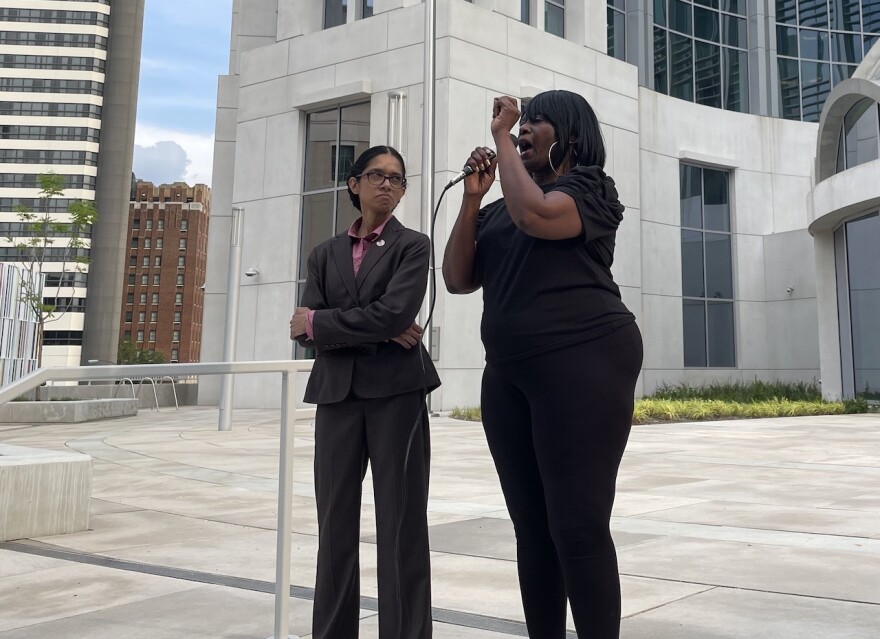The number of abortions carried out in Tennessee has been dropping for the last decade as Republicans have imposed more restrictions — from 14,245 in 2008 to 8,727 in 2019. At this point, Black women account for roughly half of all the state’s abortions, driving equity concerns as an all-out ban looms.
The main contingency plan for Tennesseans would require travel. Abortion advocates are spinning up programs to help anyone who wants an abortion get to the closest state that allows it. But that’s tougher on those with lower incomes — or just a job with no flexibility and other children to care for.
Rev. Venita Lewis, who is a Nashville Civil Rights activist, says Black and brown women will suffer most due to their historic place at the bottom of the economic ladder.
“We do not have the money to get on a plane and go to Chicago or New York to have an abortion,” she said at a rally Tuesday night following the leak of a draft majority opinion overturning Roe v. Wade.
More: What would happen in Tennessee if the Supreme Court overturns abortion law?
In Tennessee, 2019 data collected by the state Department of Health shows the rate for Black women was four times higher than that of white women.
Lewis says the result may be more self-induced abortions, which could lead to complications that have the potential to push up another stat where Black women fare poorly — maternal mortality.
“Either the means of getting an abortion is not going to be safe, so you put your life at risk. Or you carry the baby to term,” says Dr. Digna Forbes, interim dean of the School of Medicine at Meharry Medical College, a historically Black institution. “Now you have the economic burden of raising a child that you cannot afford.”
This Is Nashville plans to follow up on this issue in the coming weeks. And we want to hear from you about your questions on abortion access in Tennessee. Leave us a voice message at ThisIsNashville.org. Copyright 2022 WPLN News. To see more, visit WPLN News. 9(MDAxODQ3NzExMDEyMTczNzkxNDU5MmE1Yg004))





